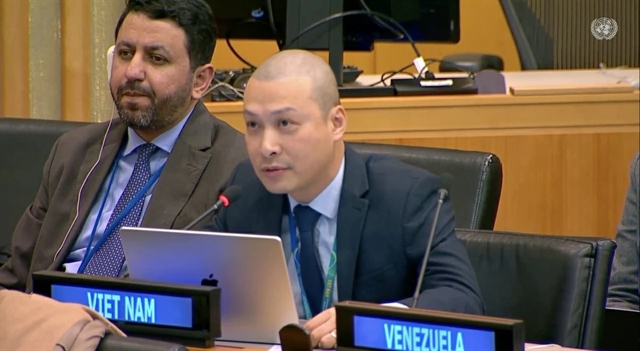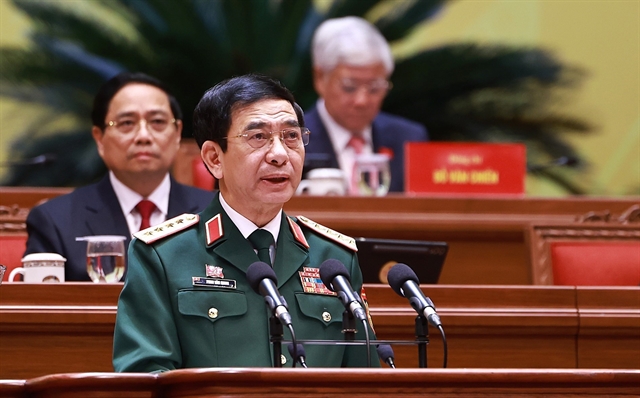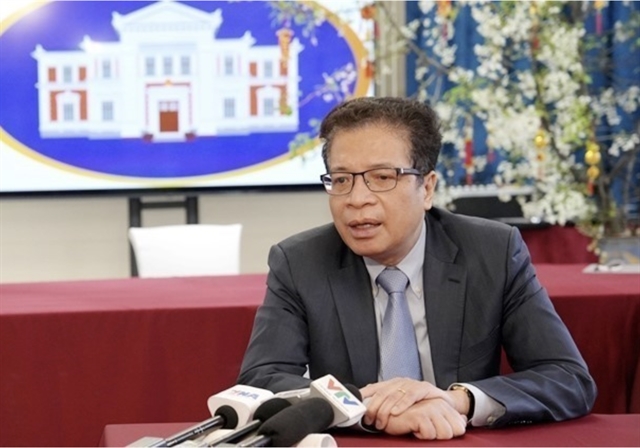 Opinion
Opinion
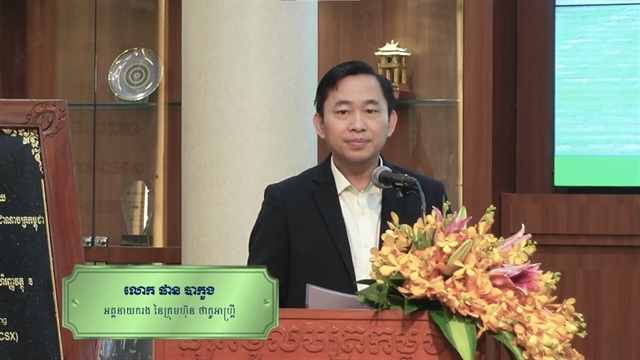
In commemoration of the 97th anniversary of the Việt Nam Revolutionary Journalism Day (June 21), Hồ Quang Lợi, former Permanent Vice-chairman of the Việt Nam Journalist Association (VJA), talks to chinhphu about the role of the press.
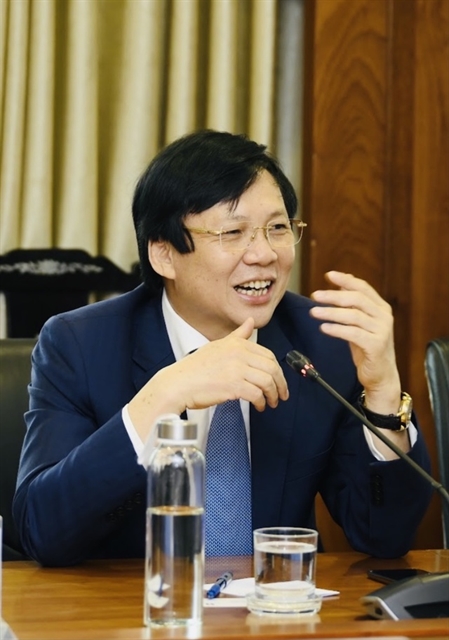
|
| Hồ Quang Lợi, former Permanent Vice-chairman of the Việt Nam Journalist Association (VJA). — Photo chinhphu.vn |
In commemoration of the 97th anniversary of the Việt Nam Revolutionary Journalism Day (June 21), Hồ Quang Lợi, former Permanent Vice-chairman of the Việt Nam Journalist Association (VJA), talks to chinhphu about the role of the press.
Could you please give some comments on the contribution of the press in supporting the Government to carry out recent tasks in socio-economic development?
In historical periods, especially in difficult times, the Vietnamese revolutionary press has consistently affirmed its role and position.
The press not only disseminates, reflects and contributes to bringing the guidelines, lines, policies and laws of the Party and State to life but is also an effective information channel in performing the task of criticism and feedback and functions as a bridge to convey people's thoughts and aspirations to all levels of the government.
Especially in the two years of the pandemic, we have seen more clearly the role and power of the press, especially in supporting the Government to respond to the pandemic. The press promptly and accurately conveys Government directives to the people and community.
I highly appreciate journalists' sense of responsibility and commitment in this aspect.
The press has also presented good deeds of people in times of pandemic and spread the kind love for each other in the pandemic. Thereby helping people feel secure, trusted and supported to overcome difficulties.
The press has also played an active role in criticising and fighting against corruption.
Many shining examples of the press in this regard have been honoured with prestigious awards of the Vietnamese revolutionary press, such as the National Press Prize, National Press Award on Party building, and National Press Award for anti-corruption. These are the major press awards that the Vietnam Journalists Association has hosted for many years.
In the current context, with social networks developing so strongly, it is sometimes feared that traditional newspapers are losing their "exclusivity" because the public can access information from many other channels. What challenges are journalists facing in this?
In addition to the advantages of the Internet and social networks, journalism is also facing severe challenges.
As social networks develop tremendously, it puts the press in a situation where it always has to "follow" the social networks. Therefore, it is possible that the press "follows" social networks, and this is dangerous because the press may lose its role when it does not become the mainstream information source. Therefore, the press must respond to everything on social networks with timeliness, accuracy, reliability and responsibility.
In your opinion, how should news agencies innovate and direct information in the current digital transformation trend?
In my opinion, digital transformation is becoming an urgent requirement of social life, especially for the press. The press must be the pioneering force in the national digital transformation. Digital transformation in journalism is not simply digitisation, but it must start with a breakthrough in thinking.
Digital transformation in journalism is a complete process, not just digitisation, but also the management and operation of the press agency and how we publish information.
Only a few press agencies have implemented digital transformation, and initial results have been quite positive. However, digital transformation in the press has not yet reached the necessary level, so we still need to better raise awareness of responsibility in digital transformation because if digital transformation is successful, the press needs to adopt it.
This is a new way of doing journalism compared to the past, and it can be said to some extent that it will have to form a new style, a new journalistic culture brought about by digital transformation.
Our entire press system, from each reporter to the Editor-in-Chief, should be digitalised entirely, from receiving information, implementing and completing, and spreading information to society.
Press agencies need to invest in the necessary equipment to apply scientific and technological achievements to journalism. People and technology are important factors contributing to successful digital transformation in journalism.
But in my opinion, no matter how technology develops, "content is still the soul of journalism." Journalists must focus on improving the quality of journalistic works and delivering them on technology platforms to maximise their effects.
Since its establishment in 2006, the Government e-Portal has become the official information channel of the Government on the Internet. How do you evaluate the role of the e-Portal?
The Government e-commerce portal is a vital information supply channel, effectively serving the direction and administration of the Government and the Prime Minister, bringing many benefits to all classes of people and businesses and forming an online bridge between the Government with the people.
The content posted on the Government e-Portal is very diverse, reflecting quickly and promptly all government activities, ministries, and central and local branches. The information is fast and accurate, demonstrating transparency in the Government's operations.
In addition to information on direction and administration, the portal also organises many online dialogues and seminars, and updates and publishes many legal documents and guiding and operating documents.
Along with the website chinhphu, the Government Portal is currently operating the Government Information fan page on Facebook with more than 3.4 million followers, as well as Zalo government information with approximately 10 million followers.
The information from the Government e-Portal is perceived to be very valuable to the public because it is official information, so is extremely reliable.
I want to emphasise further that during the recent pandemic, the Government e-Portal did a very good job communicating the executive direction of the Government and the Prime Minister in disease prevention and control, ensuring social security in the most challenging times, strengthening people's trust in the Party and Government.
On the 97th anniversary of the Vietnam Revolutionary Press Day, what would you like to say to journalists, reporters and editors?
The Vietnamese press is going through a transformation in terms of working style and method. I think the way of doing journalism may be different with digital transformation and the focus of press agencies on building a converged and multimedia newsroom. This is an irreversible trend in the Vietnamese press and the world.
Every newsroom and journalist needs to actively and effectively use communication technology in journalism, from information gathering and content production to content publishing on various platforms.
This is a new way of doing business, and there will be new journalistic products in a new style with a stronger pervasiveness.
But although the way of doing the job may be different, the profession's ideal and work ethic cannot change. Our motto is objectivity, fairness, respect for the truth, protection of justice and reason. The sacred mission of journalism is to benefit the nation and people. Each journalist must be very aware of their responsibilities.
Newspapers cannot compete with social networks in terms of speed of reporting but must surpass social networks in terms of persuasion, reliability and professionalism.
In addition to our strong political will and increasing professional qualifications in the digital age, we must always uphold professional ethics. Professional ethics are at the core of journalistic activities. Without work ethics, we will never fulfil our journalistic responsibilities to society.
In my opinion, society is bundled with information and sometimes too chaotic. Because of that nature, people really need authentic, accurate, useful information, and that is what a responsible journalist with wisdom and humanity must provide.
Not only that, we must continue cultivating journalism that both tackles problems head-on and is humane. The fight for justice and humanity always go hand in hand or blend together to create humanistic, revolutionary and professional journalism. — VNS



